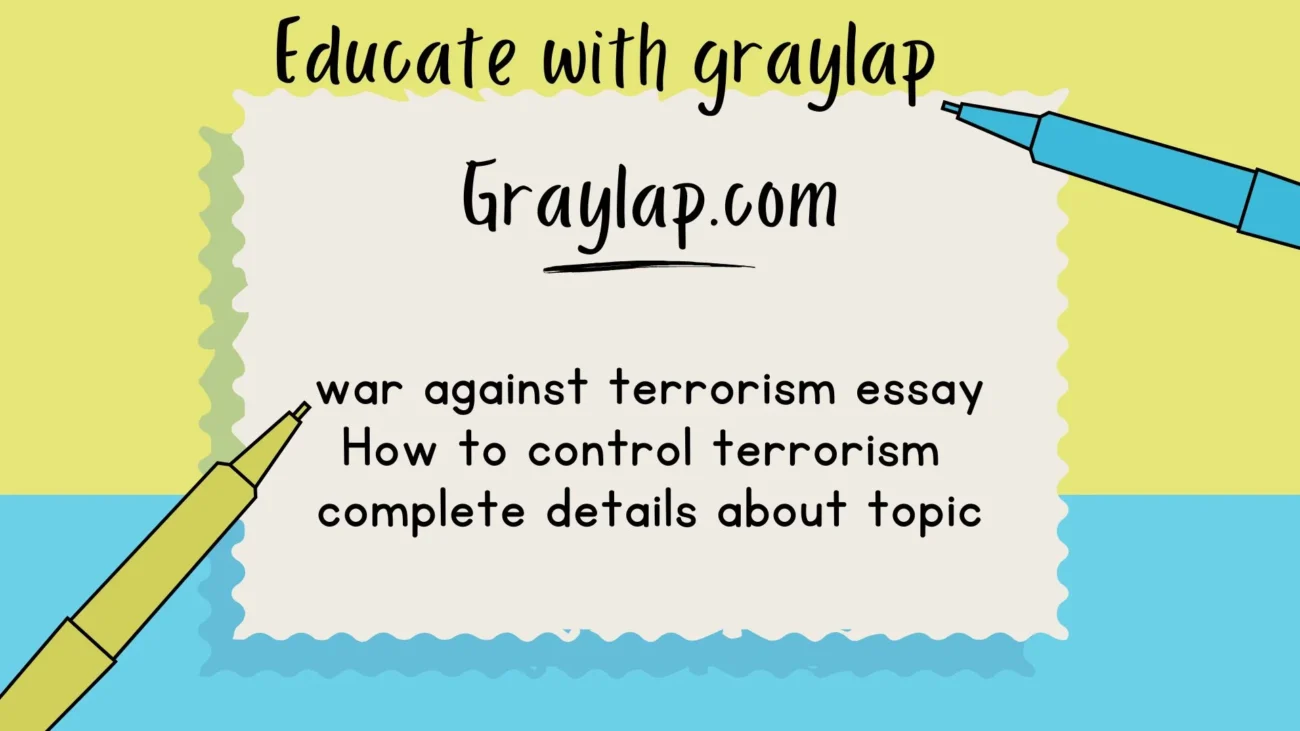Terrorism is often considered a deliberate and extremely dangerous act carried out in response to an injustice. Regarding the word “terrorist,” there is neither any legal nor practical consensus.
The writer Gerald Seymour explains this disagreement in his book Harry’s Game, where he states:
“One man’s terrorist is another man’s freedom fighter” (Seymour, 1975).
Terrorism means the use of violence or threats to frighten people and gain power. It is carried out by individuals or groups to force others to accept their ideas or demands. Terrorism harms innocent people and disrupts the peace of society.
War on terrorism
The war against terrorism began as a global effort to fight groups and people who use fear and violence to achieve their goals. After the events of 9/11, many countries joined hands to stop terrorism, and Pakistan became one of the main countries involved in this struggle. This war is not only about the use of weapons but also about removing the reasons that give rise to terrorism, like poverty, injustice, and lack of education. It has affected millions of lives, caused loss of innocent people, and changed the way nations work together for peace. The war against terrorism is still going on, and it teaches us that peace, unity, and justice are the real answers to violence.
Terrorism in Pakistan
Terrorism has placed a heavy burden on South Asian countries, especially Pakistan, which has suffered social, economic, and human losses due to it. Pakistan is always shown as being on the front line against terrorism, yet it is wrongly considered as the supporter of terrorism.
The Soviet–Afghan war, which started in 1979, became a major source of terrorism in the region. This conflict brought a deep transformation that reshaped the nature of Pakistani society. After the withdrawal of Soviet forces, Pakistan was left facing a culture of violence and widespread weaponisation. The country found itself struggling with what came to be known as the “Kalashnikov culture” and “Talibanisation” (Wadhwani, 2011).
How to control terrorism
Below are some points on how terrorism can be eliminated.
- Education for All
Provide proper education to guide youth away from extremism.
- Reduce Poverty
Create jobs and economic opportunities to remove frustration.
- Strong Law and Order
Strengthen police, army, and intelligence to stop attacks.
- Promote Peace and Tolerance
Encourage harmony and respect among communities.
- Justice for All
Ensure fair treatment so people do not feel ignored or oppressed.
Also read:
essay on Quaid e Azam Muhammad Ali Jinnah
essay on eid
Try Try again story
Essay on cricket match
reduced sllaybus for class 10
bsek result 2025 ssc part 1


5 thoughts on “War Against Terrorism: Challenges, Impacts, and the Path to Peace”